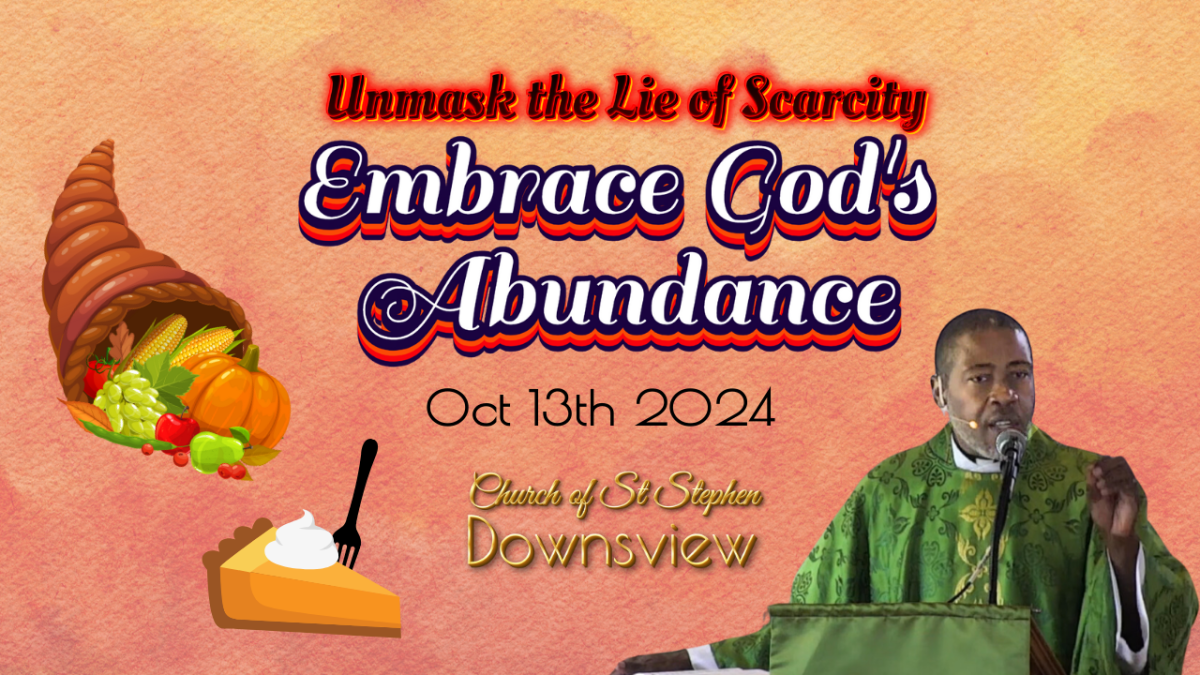 In a world where headlines often scream of scarcity, rising costs, and economic woes, it’s easy to become ensnared in a narrative that seems almost inescapable. Today, I invite you to pause with me and consider a different perspective—one rooted in the teachings and wisdom of scripture, and more importantly, in the boundless generosity of God.
In a world where headlines often scream of scarcity, rising costs, and economic woes, it’s easy to become ensnared in a narrative that seems almost inescapable. Today, I invite you to pause with me and consider a different perspective—one rooted in the teachings and wisdom of scripture, and more importantly, in the boundless generosity of God.
Reflecting on Scripture
This morning, let’s meditate on the words from Matthew’s Gospel, Chapter 6, verses 25 and 32 to 33: Jesus says, “Do not worry about your life, what you will eat, drink, or wear. Is not life more than food and the body more than clothing? It is the Gentiles who strive for all these things. Your heavenly Father knows you need these things, but strive first for the kingdom of God and his righteousness.” These words beckon us to shift our focus from anxiety to faith, from scarcity to abundance.
As we observe Thanksgiving, a time traditionally set aside to be grateful, let us explore the juxtaposition between the pervasive feeling of scarcity and the divine truth of abundance. For the past few years, many have felt the pinch of rising costs—groceries, rent, fuel—all seem to surge relentlessly. We’ve grown accustomed to hearing explanations that boil down to supply chain issues or economic demands.
The Reality Behind Rising Costs
However, if you pay close attention, you’ll notice an unsettling trend: major grocery store chains and investment capitalists continue to post record profits despite the economic strain felt by many. This paints a picture not just of supply and demand, but of greed—greed that distorts the prices we pay for necessities like food and shelter.
This greed is evident in other aspects of our lives too—be it fuel prices, homeownership, or saving for future needs. We’re tangled within an economic web designed to cause fear that we might not have enough. Yet, Jesus’ teaching calls us to a different understanding, one that challenges the prevailing mindset.
Living in God’s World
Jesus was not merely offering comforting words but revealing a significant truth: this is God’s world, and He has abundantly provided for all our needs. The Old Testament lesson from Joel echoes this, reminding us of God’s ability to restore and provide generously.
We often forget how to share, succumbing to the belief that the world’s resources are finite. But the world manipulates this fear of scarcity to drive consumption. The world’s markets thrive on convincing you that there’s never enough, and that you’re merely a consumer whose identity is defined by possessions.
Recognizing and Embracing Abundance
As people of God, we’re called to reflect on whether we’re living according to the world’s scarcity lie or God’s abundance truth. Recognizing that we’ve all been swayed by the scarcity narrative is the first step toward liberation from its burden. This acknowledgment allows us to lean into God’s grace and live more freely.
Our understanding of abundance affects how we view our finances, hold onto possessions, and relate to others. Believing that we need to hoard and protect our resources only burdens us with more anxiety and distance from God’s purpose.
Striving for God’s Kingdom
God encourages us to focus not on what we think we need, but on His kingdom and righteousness. By overly focusing on material needs, we invite anxiety into our hearts and miss witnessing God’s providence in our lives. When we shift our attention towards God’s kingdom, we find true freedom and joy, experiencing His provision in profound ways.
Generosity, self-giving, and gratitude are acts of worship and recognition of the God who continuously provides for us. Let us not waste our lives chasing after what we cannot take with us, but instead, seek a life rich in connection, meaning, and faith.
Conclusion
As we strive for God’s kingdom, let us remember that our Heavenly Father knows our needs. He invites us to trust in His abundance, putting aside our fears and embracing the life He offers. Seek first His kingdom, and the rest will follow.
